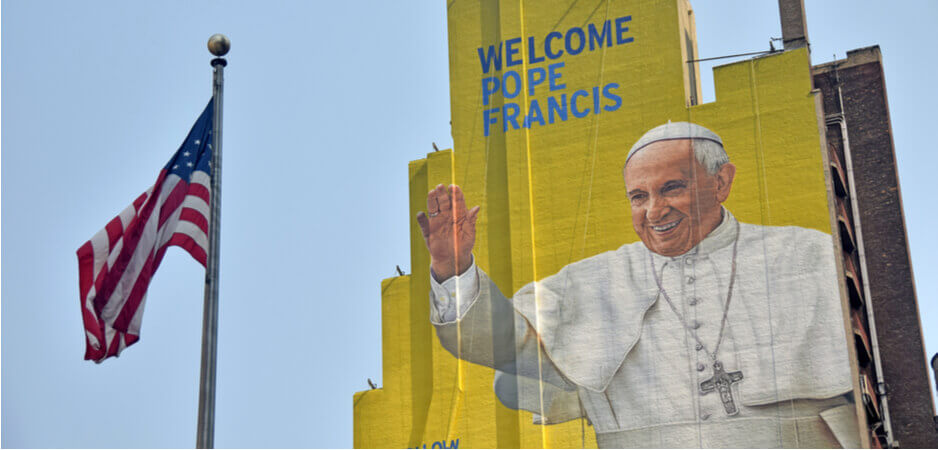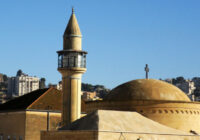In his papal encyclical, “Laudato Si’” (“Praise Be”), issued in May 2015, Pope Francis reminded humanity of its responsibility for stewardship of the planet, including addressing the challenge of our times, climate change. Had the pope stuck to the environmental message, it would have been history-making enough for the papacy. However, he went on to connect environmental devastation to poverty, growing inequality and the consumer-driven economies of today’s world. The latter, said Francis, prioritize profit and individual comfort and well-being over the welfare of mankind and the health of the planet.
The pope affirmed his agreement with the scientific consensus that not only is the earth warming at an alarming rate, but also that humanity bears a significant share of the responsibility. He condemned “worship of gross national product over human life and health” and tied such worship to mankind’s treatment of “Mother Earth,” asserting that “We have come to see ourselves as her lords and masters, entitled to plunder her at will.”
Was It Un-American?
In the US, a self-confessed secular but majority-Christian nation, the pope’s encyclical was greeted predictably with cheers and jeers as many pundits and politicians chose to read it as a political treatise — if not outright lecture to capitalist economies — as opposed to a spiritual message and call to Christian action. Was its less-then-veiled criticism of economic policies today a full-on assault of capitalism by the left-leaning pontiff? American audiences could hardly be expected to embrace such a politically tainted condemnation of their nation’s underlying economic system.
Coming just 18 months before the 2016 presidential election, in which issues like climate change, poverty and inequality were heavily debated, the pope’s document received much media attention. The candidates, however, largely avoided committing themselves, neither harshly criticizing nor warmly embracing its arguments.
In truth, few US politicians and Americans have connected climate change to America’s own problems with poverty and inequality. The latter are generally ascribed to historical factors such as race or culture, imbalanced economic policies favoring the wealthy, globalization, technology, access to education and/or health care, etc., or some combination of these. To the extent that climate change is a contributing factor to poverty, it hasn’t registered in the US the way that it might in less developed nations.
Four years later, little has changed. Though the papal pronouncement stands out as one of Francis’ more noteworthy since his historic 2013 elevation to the Chair of St. Peter as the first Latin American, it garners little attention among the general American public or political class. That may surprise some, given the continuing relevance of the issues addressed. Debates over climate change and inequality rage on, and those issues are likely to play major roles in the 2020 election.
The gist of “Laudato Si’” would seem to accord with the views of the US Democratic Party and of most American so-called liberals or progressives. So why not refer to or use the strong case made by Francis in their political campaigns? Why aren’t Americans giving the pope’s encyclical more attention? Could politicians use it to win the support of American Catholics?
Catholic Diversity: It’s Complicated
America is a secular nation and becoming more religiously diverse by the year. Christians may still hold a significant majority at nearly 75%, but their numbers are being eclipsed by all the others, including a rising number of “nones” — those who profess no faith. By mid-century, Christian Americans will number less than two-thirds. Among Christians, Catholics are the largest group, comprising over 20% of the US population. Their size presents a problem, however, to US politicians considering tapping into this large section of the population for votes. According to the Pew Research Center, Catholics tend to be the most geographically and among the most ethnically diverse religious groups in the US, at least as between whites and Latinos.
That diversity is a problem for political parties since Catholics don’t fall easily into one of the general political classes of the left and right. They are nearly evenly split between the two major political parties, Republican and Democratic. That is, they are as politically diverse as they are geographically and ethnically.
Catholics in general view climate change as a problem, but they differ over its causes and what actions the government should take. Importantly, they splinter according to political affiliation as opposed to their shared faith. Their views on inequality are similar to those of the general population. Despite the church’s strong position on social justice, it doesn’t always reach the membership in the same way. So, a political platform that hews, for example, toward actively combatting climate change and addressing inequality, may win as many Catholic votes as it loses.
Even such issues as abortion and gay marriage, which the Catholic Church continues to firmly oppose, are hardly slam-dunks among Catholics. They are as likely to support as oppose abortion, and a growing majority now supports the church accepting same-sex marriage. Among Christians, Catholics appear to be the most tolerant toward transgender people but remain divided on how they might be included within the church.
America Shuns Rome
Beyond the Catholics in America, there may be even more profound reasons for the little traction gained by “Laudato Si’.” For one, there is the little-mentioned but still extant anti-papist thread in American society that translates to not taking political advice from Rome. Americans in general, and even most Catholics, are loath to invoke the pope or anything Catholic in making a political case for an issue. The country may be beyond the days when no Catholic could become president — thanks to John F. Kennedy — and Catholic political figures, as well Jewish, Muslim, Mormon and even atheists, are hardly a rarity in American politics nowadays. But all are cautious when it comes to allowing their religious beliefs or faith to creep into public positions.
And then there are the manifold problems within the Catholic Church today. These have led many Americans, including many Catholics, to question the Vatican and the pope’s self-proclaimed authority on issues of faith, morality — or just about anything.
The child sex abuse scandal, to be sure, has stained the Catholic Church for years, if not decades, to come. The sheer scope of the scandal continues to shock and repel people worldwide. A 2004 investigation uncovered approximately 10,667 reported victims (under the age of 18) of clergy sexual abuse in the US between 1950 and 2002. Recent revelations of senior clerics who were aware of or tolerated priests who engaged in the abuse have only deepened the crisis and dramatically eroded public and Catholic trust and confidence in the church leadership, including Pope Francis and his predecessor, Pope Benedict.
Moreover, there are the church’s many highly controversial positions. These include, but aren’t limited to, abortion, same-sex marriage, LGBTQ issues, women priests, priestly celibacy, birth control and divorce. Even American Protestant evangelicals, who tend to side with the Catholic Church on abortion and gay marriage, distant themselves from Rome when it comes to most of the other issues.
In short, society seems to have moved beyond the church’s stands on such issues and views its unrelenting clinging to such positions as antediluvian and unreflective of, and even harmful to, social progress today. Among many Americans, traditional Catholicism is losing its relevance in today’s world.
It’s hardly a surprise then that even American liberals see little political mileage in invoking Pope Francis’ otherwise progressive and principled stance on climate change and inequality. Even if it might accord with their broader political agenda, the added baggage isn’t worth it.
The views expressed in this article are the author’s own and do not necessarily reflect Fair Observer’s editorial policy.
Support Fair Observer
We rely on your support for our independence, diversity and quality.
For more than 10 years, Fair Observer has been free, fair and independent. No billionaire owns us, no advertisers control us. We are a reader-supported nonprofit. Unlike many other publications, we keep our content free for readers regardless of where they live or whether they can afford to pay. We have no paywalls and no ads.
In the post-truth era of fake news, echo chambers and filter bubbles, we publish a plurality of perspectives from around the world. Anyone can publish with us, but everyone goes through a rigorous editorial process. So, you get fact-checked, well-reasoned content instead of noise.
We publish 2,500+ voices from 90+ countries. We also conduct education and training programs
on subjects ranging from digital media and journalism to writing and critical thinking. This
doesn’t come cheap. Servers, editors, trainers and web developers cost
money.
Please consider supporting us on a regular basis as a recurring donor or a
sustaining member.
Will you support FO’s journalism?
We rely on your support for our independence, diversity and quality.






